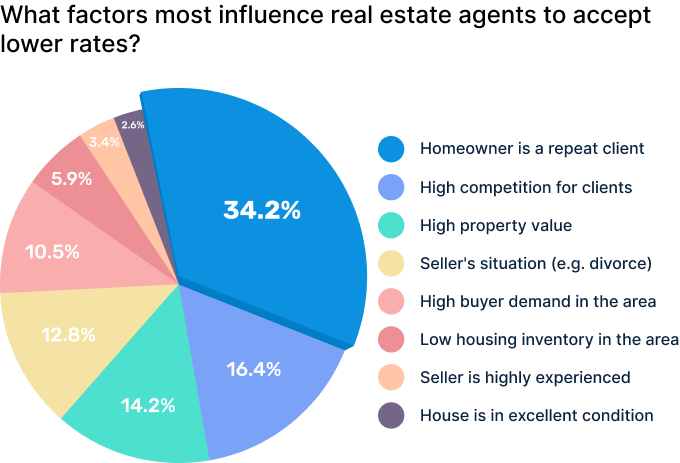
An escrow agent, a neutral third party that holds assets and money for various parties to a transaction, is an escrow agent. Escrow agents must be regulated by the state and are required to comply with mutually agreed instructions.
Getting Started
Your agent or you will deposit earnest money in an escrow account as part of the home-buying process. This is until your purchase agreement is fulfilled. This money is intended to protect the seller against a buyer who isn’t serious about the deal. It also ensures that your property taxes, insurance and other fees are paid promptly.
Your Rights and Responsibilities
As a depositor or beneficiary, you have a legal right to a full accounting of the escrow agent's management of your escrow property. This means that the escrow agency must provide you with a receipt as well as a copy or your escrow contract. They also have to keep accurate records.

You could also have the right to obtain a court order that the escrow agency release your property to you, your beneficiaries or to recover money damages. If the escrow agent fails in this, you can request the information in court.
Entering Escrow
Your lender and you will both work with an escrow representative during the home buying process. The escrow agent will monitor funds from your lender, pay your realty agent, and submit documents at the recorder's offices to complete the transfer.
Your Right to Shop for Escrow Services
Typically, escrow service fees are included in the loan estimate. You can then choose the best escrow officer for you. If you aren't sure what escrow service you require, ask your lender about an estimate of fees. You can also talk to an escrow agent to discuss your options.
Your Legal Obligations Must Be Respected by the Escrow Agent
An escrow agent must fulfill their fiduciary obligations to the buyer and seller. This is a big responsibility. It's important that you only trust the escrow agent.

Definition of Escrow Company
An escrow business is a type or title company that acts between buyers/sellers in real estate transactions. These companies may place your deed to a house in escrow for the closing date. They also may pay taxes or other bills on your behalf.
Every escrow service you use will have its own set of rules and regulations. Make sure you read them before signing up to work with an Escrow Company. It's important that you choose an escrow agency that is dedicated to providing exceptional service to home buyers and you.
FAQ
Is it possible to quickly sell a house?
You may be able to sell your house quickly if you intend to move out of the current residence in the next few weeks. There are some things to remember before you do this. First, find a buyer for your house and then negotiate a contract. The second step is to prepare your house for selling. Third, it is important to market your property. You must also accept any offers that are made to you.
How many times may I refinance my home mortgage?
This is dependent on whether the mortgage broker or another lender you use to refinance. In both cases, you can usually refinance every five years.
How do I eliminate termites and other pests?
Over time, termites and other pests can take over your home. They can cause serious damage to wood structures like decks or furniture. To prevent this from happening, make sure to hire a professional pest control company to inspect your home regularly.
Statistics
- 10 years ago, homeownership was nearly 70%. (fortunebuilders.com)
- When it came to buying a home in 2015, experts predicted that mortgage rates would surpass five percent, yet interest rates remained below four percent. (fortunebuilders.com)
- Private mortgage insurance may be required for conventional loans when the borrower puts less than 20% down.4 FHA loans are mortgage loans issued by private lenders and backed by the federal government. (investopedia.com)
- Some experts hypothesize that rates will hit five percent by the second half of 2018, but there has been no official confirmation one way or the other. (fortunebuilders.com)
- This means that all of your housing-related expenses each month do not exceed 43% of your monthly income. (fortunebuilders.com)
External Links
How To
How to Manage a Property Rental
Renting your home can be a great way to make extra money, but there's a lot to think about before you start. We will show you how to manage a rental home, and what you should consider before you rent it.
If you're considering renting out your home, here's everything you need to know to start.
-
What are the first things I should consider? You need to assess your finances before renting out your home. If you have debts, such as credit card bills or mortgage payments, you may not be able to afford to pay someone else to live in your home while you're away. You should also check your budget - if you don't have enough money to cover your monthly expenses (rent, utilities, insurance, etc. It might not be worth the effort.
-
How much does it cost for me to rent my house? There are many factors that go into the calculation of how much you can charge to let your home. These include factors such as location, size, condition, and season. Keep in mind that prices will vary depending upon where you live. So don't expect to find the same price everywhere. Rightmove estimates that the market average for renting a 1-bedroom flat in London costs around PS1,400 per monthly. This would translate into a total of PS2,800 per calendar year if you rented your entire home. That's not bad, but if you only wanted to let part of your home, you could probably earn significantly less.
-
Is it worth it. There are always risks when you do something new. However, it can bring in additional income. Make sure that you fully understand the terms of any contract before you sign it. Not only will you be spending more time away than your family, but you will also have to maintain the property, pay for repairs and keep it clean. Make sure you've thought through these issues carefully before signing up!
-
What are the benefits? Now that you have an idea of the cost to rent your home, and are confident it is worth it, it is time to consider the benefits. Renting out your home can be used for many reasons. You could pay off your debts, save money for the future, take a vacation, or just enjoy a break from everyday life. It is more relaxing than working every hour of the day. And if you plan ahead, you could even turn to rent into a full-time job.
-
How do I find tenants Once you decide that you want to rent out your property, it is important to properly market it. Listing your property online through websites like Rightmove or Zoopla is a good place to start. Once you receive contact from potential tenants, it's time to set up an interview. This will enable you to evaluate their suitability and verify that they are financially stable enough for you to rent your home.
-
How can I make sure I'm covered? If you're worried about leaving your home empty, you'll need to ensure you're fully protected against damage, theft, or fire. You will need to insure the home through your landlord, or directly with an insurer. Your landlord will usually require you to add them as additional insured, which means they'll cover damages caused to your property when you're present. This doesn't apply to if you live abroad or if the landlord isn’t registered with UK insurances. In such cases you will need a registration with an international insurance.
-
Even if your job is outside the home, you might feel you cannot afford to spend too much time looking for tenants. But it's crucial that you put your best foot forward when advertising your property. You should create a professional-looking website and post ads online, including in local newspapers and magazines. You'll also need to prepare a thorough application form and provide references. Some prefer to do it all themselves. Others hire agents to help with the paperwork. You'll need to be ready to answer questions during interviews.
-
What do I do when I find my tenant. If you have a lease in place, you'll need to inform your tenant of changes, such as moving dates. If this is not possible, you may negotiate the length of your stay, deposit, as well as other details. Remember that even though you will be paid at the end of your tenancy, you still have to pay utilities.
-
How do you collect rent? When it comes to collecting the rent, you will need to confirm that the tenant has made their payments. If they haven't, remind them. Before you send them a final invoice, you can deduct any outstanding rent payments. You can call the police if you are having trouble getting hold of your tenant. If there is a breach of contract they won't usually evict the tenant, but they can issue an arrest warrant.
-
How can I avoid problems? You can rent your home out for a good income, but you need to ensure that you are safe. You should install smoke alarms and carbon Monoxide detectors. Security cameras are also a good idea. Check with your neighbors to make sure that you are allowed to leave your property open at night. Also ensure that you have sufficient insurance. You should not allow strangers to enter your home, even if they claim they are moving in next door.